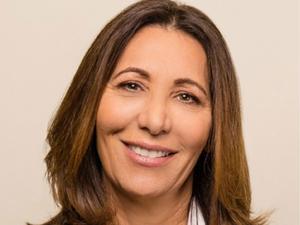
FiscalNote Inc.’s aggressive growth activity could propel it to the public arena. Just not yet.
The D.C. legislative and regulatory dashboard, which has acquired eight companies within the past 10 months, is weighing “a bunch of strategic options” as it enters the next phase of its evolution, founder and CEO Tim Hwang said in an interview.
But until then, the 8-year-old startup — whose software helps clients track and take action on laws and regulations — intends to do what it does best: snap up smaller companies in a bid to become a more important and integral part of its customers’ day-to-day lives.
That means expanding further and pushing deeper into fields such as cryptocurrency, cannabis, autonomous and electric vehicles, the gig economy, telehealth, sports betting and online gaming — what Hwang refers to as “regulated sectors of the future.” These are areas where “there’s going to be a significant level of regulatory change,” he said, creating new challenges for FiscalNote’s customers and demand for new data or tools to help them navigate the uncharted waters.
That’s why, Hwang said, “we essentially are making a series of acquisitions to be able to guide the business into the next stage, which is really being at the core epicenter of each of these categories.”
Related: Here are the D.C. region’s highest-valued startups
The M&A strategy
FiscalNote has been on an explosive growth tear over the past year alone. The company has raised large successive rounds of funding, showcasing Hwang’s ability to repeatedly secure investments from a slew of big-name investors. That money went straight to work, as the company acquired Factsquared and Fireside, both of D.C.; Australia’s TimeBase; New York’s Predata; Singapore’s Equilibrium; Oxford Analytica of the United Kingdom; Board.org of Austin, Texas; Forge.AI Inc. of Cambridge, Massachusetts; and Curate Solutions of Madison, Wisconsin. It’s all with an eye toward establishing the business as a one-stop shop for regulatory intelligence.
That’s why the company is charging forward with CQ Roll Call, which it acquired for $180 million in 2018 and remains an important piece of FiscalNote’s strategy, Hwang said. The business can use the platform to penetrate these different sectors; for instance, by not only reporting floor speeches that come out of Congress, but also covering subcommittee hearings on autonomous vehicles, he said. “We see this really as a foundation of what we’re trying to build on top of.”
But up to this point, FiscalNote has focused on what the government is doing, the “what’s going on?” question, which sits at the heart of the business, Hwang said.
With these acquisitions — and more to come — the company now wants to help its customers figure out how to respond to that action.
So now and heading into 2022, FiscalNote is looking for other software tools, technologies and data sets to take its role to the next level, Hwang said. “We’re being pushed into those categories by our customers and the ‘What do we do about it?’ question is becoming a louder and louder part of our business and, really, what’s driving a lot of our M&A activity here.”
The IPO strategy
FiscalNote’s future entry into the public markets has seemed inevitable — and it’s still on the table.
“We’ve been making a series of preparations internally for an eventual public offering,” Hwang said.
That includes hiring Paul Donnell as the company’s chief accounting officer in June, in addition to other additions across the organization, he said. It comes as the now 650-employee company continues a big hiring spree with 80 open positions currently and an intention to “pretty aggressively invest into the [D.C.] region,” Hwang said.
But as to whether an initial public offering is imminent? “It’s one of many options that we’re looking at subject to market conditions,” Hwang said. “I don’t think it’s a secret right now that the public markets, for instance, have been very hot, but so have the private markets. The capital markets, in general, have been very receptive to great growth stories.”
Hwang declined to comment on a timeline to execute an IPO. And when asked about instead going public through a combination with a special purpose acquisition company — aka SPAC — he said the company’s board and advisers are “looking at multiple set of different options.”
“Nothing is off the table,” he said.




